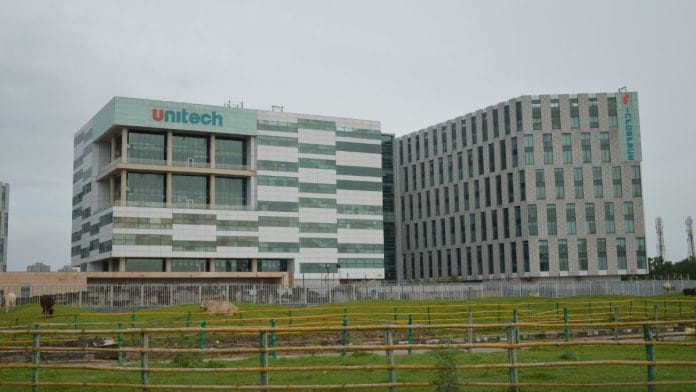New Delhi: Bringing relief to Unitech homebuyers, the Supreme Court Wednesday fixed deadlines for states in which the Gurugram-based real estate investment company has its housing projects, to accord necessary clearances to commence construction of flats in these jurisdictions. A bench of justices Surya Kant and Ujjal Bhuyan issued the directions in a six-year-old case related to stalled residential projects of Unitech.
The last effective hearing in the case was in December 2023.
In 2020, the company got a new board of directors after the top court dismissed the earlier board of directors following Unitech’s forensic enquiry that revealed a largescale diversion of funds by it. Yet, there has been very little progress in the case before the top court.
Wednesday’s hearing comes four days after a Chennai-based homebuyers’ association wrote a letter to the new Chief Justice of India (CJI) Sanjiv Khanna, requesting him to expedite the case’s hearing.
ThePrint had exclusively accessed the letter and reported on it Tuesday. Earlier, ThePrint also highlighted how the case has remained unresolved despite the top court’s attention, providing no respite to homebuyers, and is in stark contrast to the high-profile Amrapali real estate case where construction work is nearing completion.
Taking up petitions filed by homebuyers from various parts of the country, the court Wednesday permitted the new board of directors to go ahead and obtain no objection certificates and environmental clearances from governments of Haryana, Karnataka, Tamil Nadu, Uttar Pradesh, Punjab and West Bengal.
Unitech has multiple projects in the said states. It has two housing projects in Haryana’s Ambala, two in Rewari and 23 in Gurugram. The company has four proposed sites in Bengaluru and eight in Chennai. As many as 11 projects in Kolkata are yet to commence. Also, permissions need to be taken for five projects in Greater Noida. In Mohali, in Punjab, there are six residential complexes planned by Unitech.
Further, the bench directed the Noida Real Estate Regulatory Authority (RERA) to give its approval for the entire Unitech Golf Course Country (UGCC) project that is spread across more than 14 lakh square metres and not to wait for the company to clear dues that are pending towards the authority.
This flagship project of Unitech is spread out in three sectors of Noida—96, 97 and 98—and is designed to feature high-rise towers around a centrally located nine-hole lush green golf course. The land was allotted to Unitech in 2006 and possession of flats in three societies—Amber, Burgundy and Willows—to be given to homebuyers by the end of 2013.
However, no work could commence at the site due to a dispute over payment of dues to Noida by Unitech. According to the Noida Authority, the real estate company owes it Rs 5,000 crore and in lieu of the amount, the authority had asked Unitech to transfer to it a parcel of land that was part of the project.
Though work had begun on a small portion of the property over which there was no discord, a large part of the project had not even taken off since the new board was unwilling to give away the land in accordance with demands by Noida Authority.
Appearing for buyers who have invested in UGCC, advocates M.L. Lahoty and Anchit Sripat urged the bench to intervene so that work on the project can start and high-cost flats sold to buyers can be delivered. Taking note of their argument, the bench issued directions to the Noida Authority to give its permission for the entire project.
It also asked the agency to file a compliance affidavit before the court. “Dues can be taken care of later,” the bench told Noida Authority’s counsel when he opposed the order.
With regard to two more unfinished Unitech’s projects in sectors 113 and 117 of Noida, the bench said it would consider them later.
In another significant order, the top court gave one more opportunity to homebuyers who earlier sought refund of the money they paid to purchase homes in Unitech’s projects, but were now keen to return the amount and keep the flat they booked.
Although the deadline for this migration ended in November, the court agreed to give another chance to the buyers to exercise their option by 31 December.
(Edited by Radifah Kabir)






